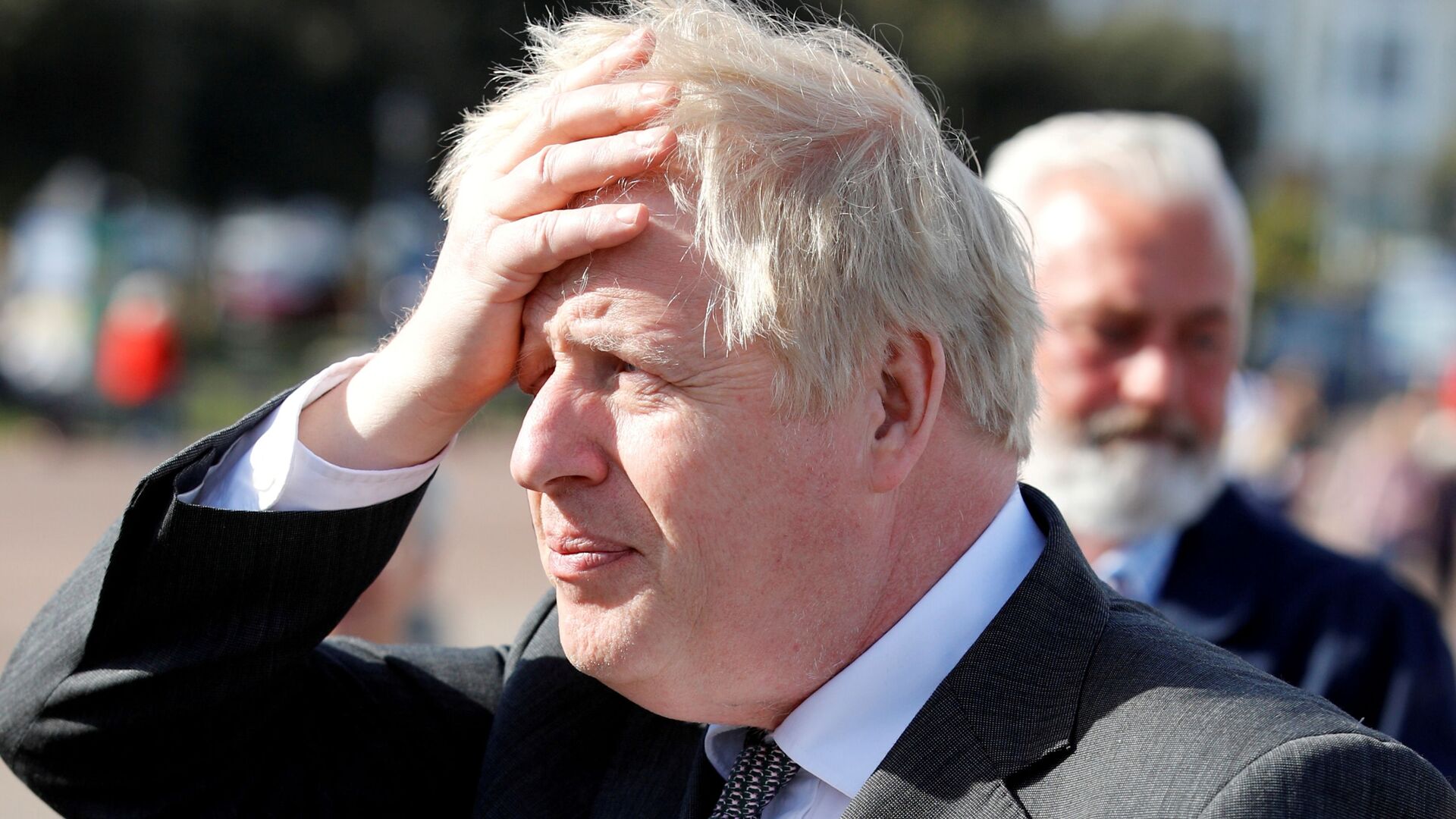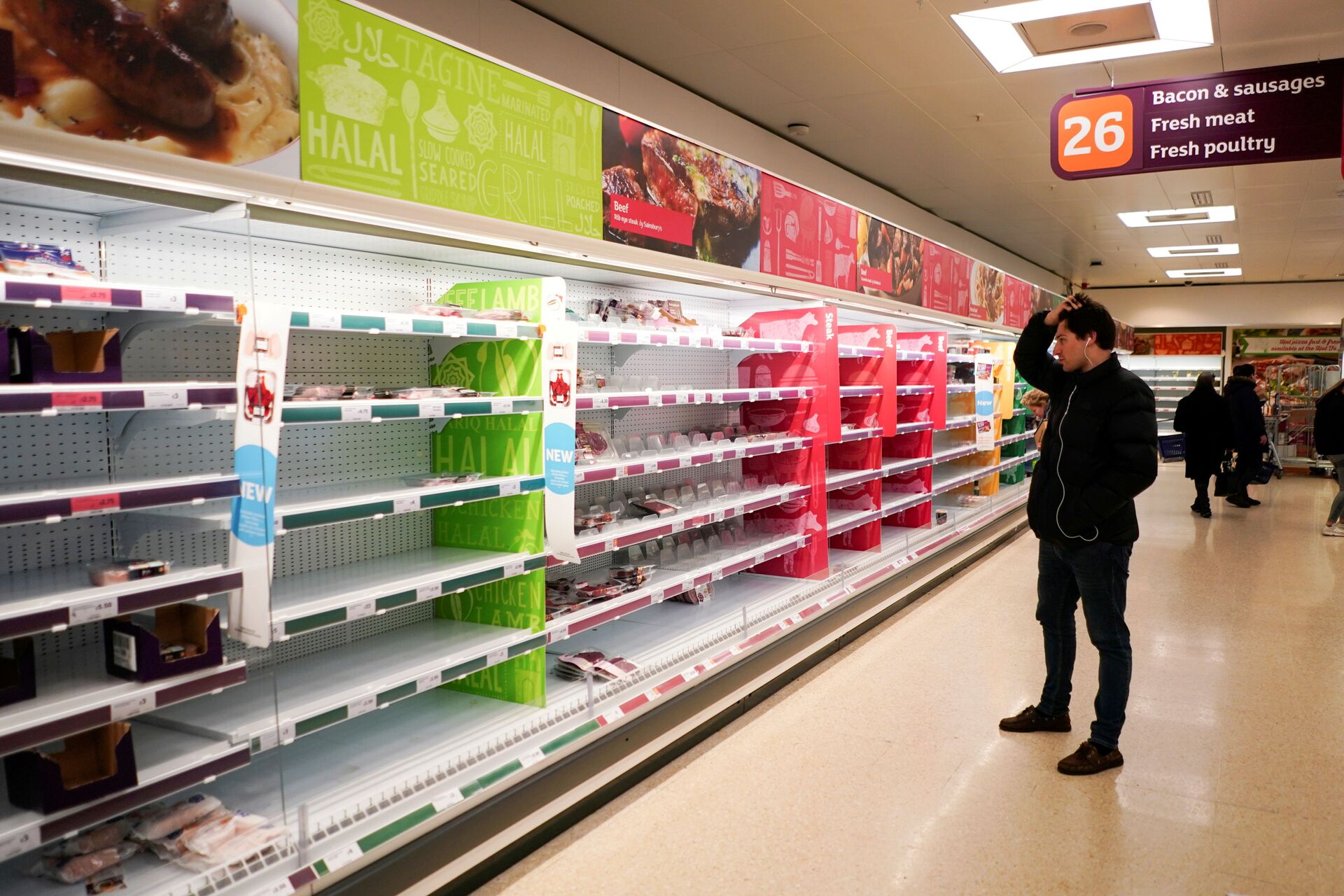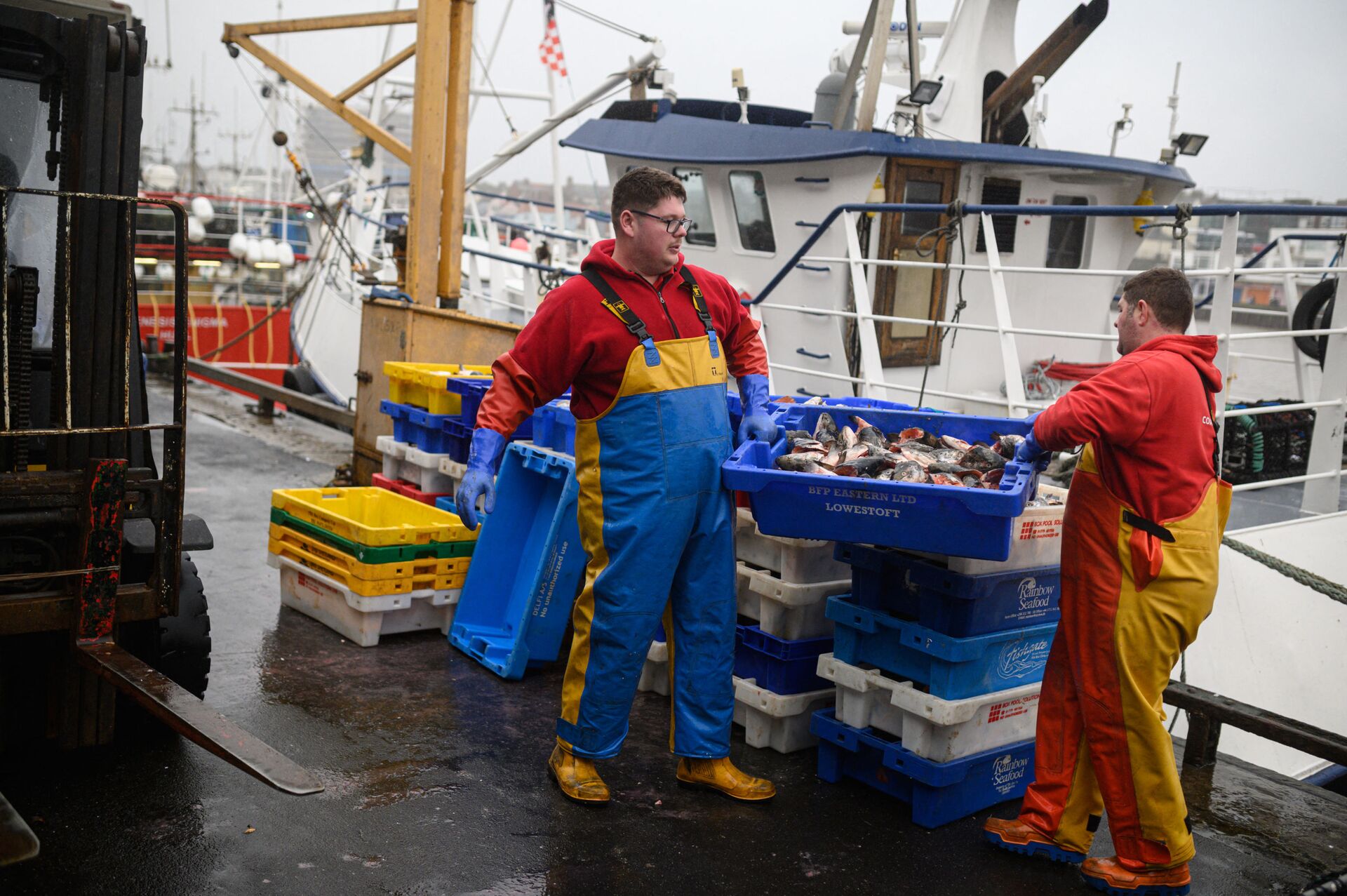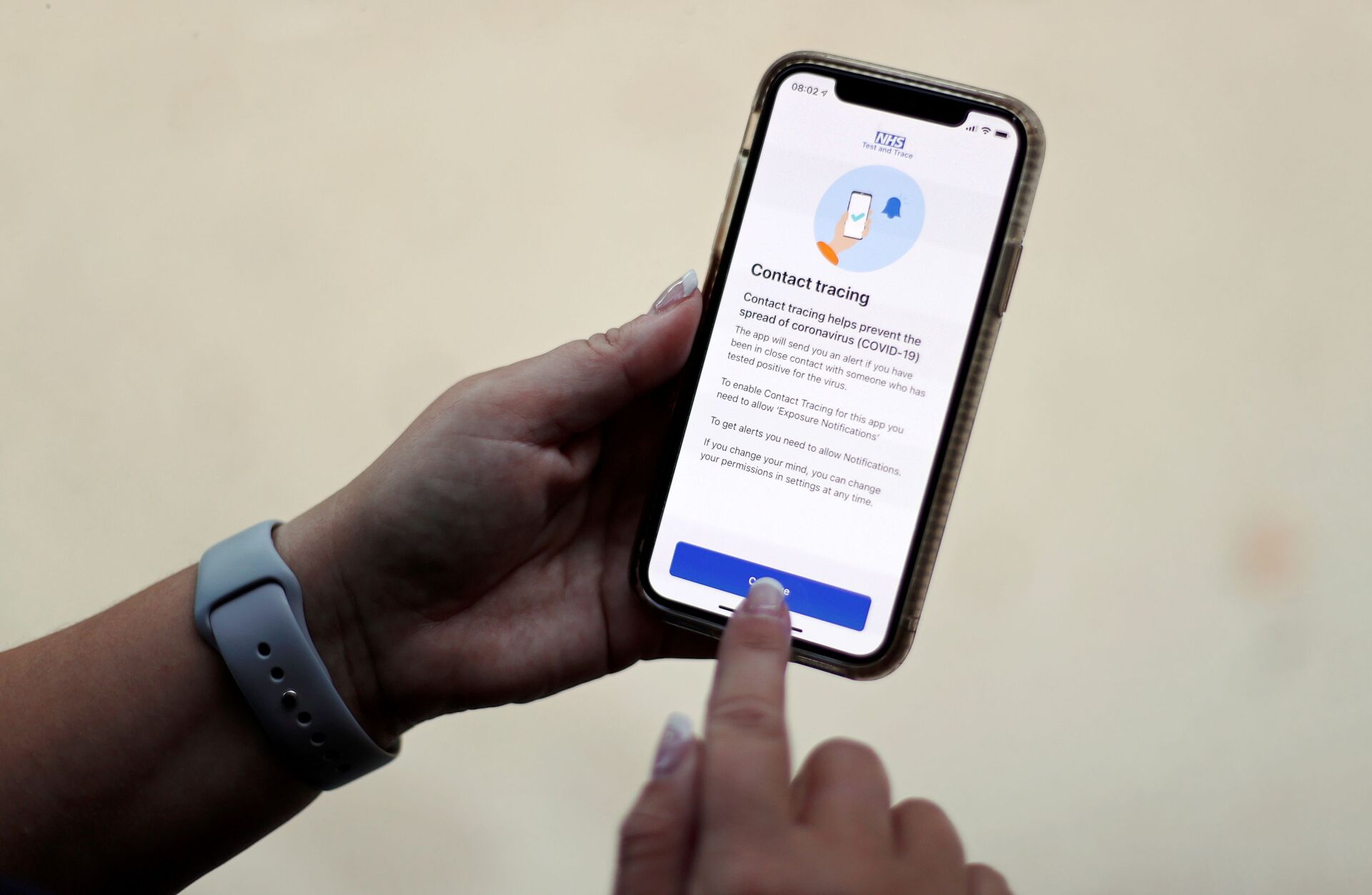'Pingdemic': Could BoJo's Approach to Self-Isolation Close Down UK Economy Rather Than Open It Up?
07:07 GMT 24.07.2021 (Updated: 15:15 GMT 28.05.2023)

© REUTERS / PHIL NOBLE
Subscribe
The Boris Johnson government's partial exemptions from self-isolation rules for food industry workers sound good but is definitely not enough as other sectors of the British economy have grown weary of COVID rules and have yet to feel the benefits of the 19 July removal of restrictions, UK businessmen say.
The UK's "pingdemic" has emptied supermarket shelves across England as thousands of food sector workers were "pinged" on their phones to self-isolate for 10 days by the NHS test-and-trace app because they had been in contact with someone infected with COVID-19.
To tackle the problem the British government has exempted supermarket depot workers and food manufacturers from self-isolating in order to prevent supermarket shelves in the country from going empty. Up to 10,000 staff workers are expected to qualify for the scheme.
Lack of Clear Guidance
The measure has been deemed insufficient, with the supermarket chain Iceland expressing "deep disappointment" over the store's workers being omitted from the list. The food industry's logistics won't work smoothly if depot workers and food manufacturers are exempted from the self-isolation list while there is no one to put products on the shelves, serve customers at the register, and deliver to their homes, argues Richard Walker, managing director of the Iceland supermarket group, in an official statement.
On the other hand, details and clear guidance are still missing on how the new scheme should be applied to individual companies and workers, with the British Meat Processors Association wondering as to what key supply chain workers are exempted.
"It's also not yet clear which workers at other sites that are not on that list will be exempt from self-isolation", the organisation notes in a statement. "In this separate scheme, we understand that companies will need to apply for exemption for individual workers on a job-by-job and person-by-person basis but we don't know what jobs would be eligible".

FILE PHOTO: A man stands next to shelves empty of fresh meat in a supermarket, as the number of worldwide coronavirus cases continues to grow, in London, Britain, March 15, 2020
© REUTERS / Henry Nicholls
More Industries are Asking for Exemptions
While the food industry has seen exemptions, other sectors of the British economy are also signalling that they have grown weary of the coronavirus measures.
Andrew Goodacre, chief executive of the British Independent Retailers Association (BIRA) laments the fact that the government's latest measure to amend self-isolation policies "does not go far enough to help independent retailers".
"It would be a tragedy if the government caused small retailers to fail by removing regulations without any forethought or support for those most affected", he says.
Critical staff shortages and lost revenue continue to bite British industries as the number of people being asked to isolate remains high. Nearly half of the businesses surveyed by the entity earlier this week have had staff either off sick with COVID or self-isolating in the past two weeks, according to the British Chamber of Commerce.

Fishermen sort and load trays of salmon heads to be used as bait for crab and lobster pots as they prepare for their next voyage to sea, on the South Pier of Bridlington Harbour fishing port in Bridlington, north east England on December 11, 2020
© AFP 2023 / OLI SCARFF
British ports, which have persevered for 18 months to keep the UK supplied with critical goods, have warned the UK government that "the number of staff being pinged is growing and could soon become a serious issue if not resolved in a pragmatic manner".
"Self-isolation rules are due to end in mid-August and we are calling for critical port workers to be exempted from the current rules in the same way that some supermarket staff are, without the need to apply on an individual worker basis", says Mark Simmonds, head of policy and external affairs at the British Ports Association.
On 23 July, Environment Secretary George Eustice ruled out the extended use of COVID isolation exemptions in England for other sectors of the economy, including hospitality and retail. He also made it clear that a new scheme for food industry workers will focus on warehouse and distribution workers but will not include supermarket store staff.

FILE PHOTO: The coronavirus disease (COVID-19) contact tracing smartphone app of Britain's National Health Service (NHS) is displayed on an iPhone in this illustration photograph taken in Keele, Britain, September 24, 2020.
© REUTERS / CARL RECINE
The Scheme is Messed Up
"The new government scheme appears to be an ill-thought-out panic measure which comes out of a lack of planning or indeed strategy by the government", according to Steve Hedley, senior assistant general secretary of the UK National Union of Rail, Maritime, and Transport Workers.
"The relaxation of safety measures including the wearing of face masks and social distancing was obviously going to lead to a massive increase in the spread of the virus and subsequently those who've come into contact with infected people", he emphasises, citing the number of infections continuing to soar in the UK.
While the government announced the removal of most of the COVID restrictions on 19 July, the current approach to self-isolation is closing down the economy rather than opening it up, argues Tony Danker, director-general of the Confederation of British Industry. According to him, "[British] businesses have exhausted their contingency plans and are at risk of grinding to a halt in the next few weeks".

